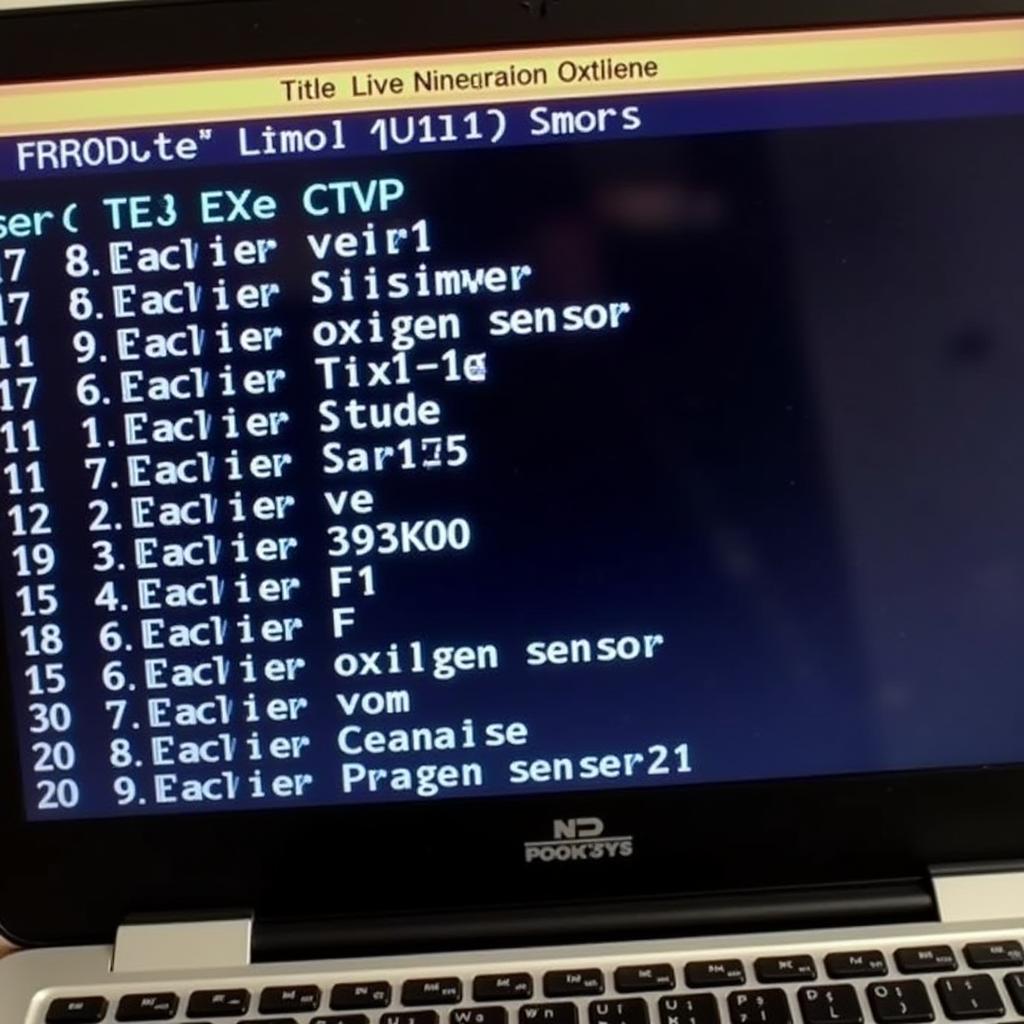A vehicle diagnostic test, often referred to as a car diagnostic or OBD-II scan, is a vital tool used to pinpoint issues within your vehicle’s systems. Think of it as a checkup for your car’s computer system. But how effective is it, and will it definitely find the fault with your car?
 Mechanic performing a car diagnostic test
Mechanic performing a car diagnostic test
Understanding Car Diagnostic Tests and Their Capabilities
Car diagnostic tests utilize a standardized system known as OBD-II, which stands for On-Board Diagnostics, second generation. Almost all vehicles manufactured after 1996 are equipped with this system. When you take your car for a diagnostic test, a scanner is connected to the OBD-II port, allowing it to communicate with your vehicle’s computer and retrieve valuable data.
This data can include:
- Stored Diagnostic Trouble Codes (DTCs): These codes are triggered when your car’s computer detects a malfunction within a specific system.
- Freeze Frame Data: This snapshot captures the operating conditions of your vehicle at the moment a fault code was stored.
- Real-time Sensor Readings: The diagnostic tool can display live data streams from various sensors, providing insights into the current performance of your engine and other components.
The Effectiveness of Diagnostic Tests: Finding the ‘What’ but not always the ‘Why’
Diagnostic tests are very effective in identifying that a problem exists. They act like a detective, revealing clues in the form of fault codes and sensor readings.
For instance, if your check engine light is on due to a faulty oxygen sensor, the diagnostic test will pinpoint the issue and indicate which sensor is malfunctioning.
 Diagnostic software interface showing fault codes and sensor data
Diagnostic software interface showing fault codes and sensor data
However, it’s essential to understand that diagnostic tests don’t always reveal the root cause of a problem. They are exceptional at identifying the ‘what’ but might not always pinpoint the ‘why.’
Let’s consider a scenario where your car’s battery keeps draining. The diagnostic test might indicate a problem with the charging system, but it won’t necessarily tell you if the issue stems from a failing alternator, a loose connection, or a parasitic drain caused by a faulty component.
When a Diagnostic Test Might Not Find a Fault
While diagnostic tests are powerful tools, there are instances where they might not identify a fault, even if one exists. Some common reasons include:
- Intermittent Issues: If the problem is intermittent and doesn’t occur while the test is being conducted, the diagnostic tool might not detect it.
- Mechanical Failures: Diagnostic tests primarily focus on electronic systems. Purely mechanical issues, like worn brake pads or a failing water pump, might not trigger any fault codes.
- Software Glitches: Occasionally, temporary software glitches within your car’s computer system can cause issues that a diagnostic test might not pick up.
 Mechanic inspecting the engine bay of a vehicle
Mechanic inspecting the engine bay of a vehicle
Beyond the Diagnostic Test: The Importance of Professional Expertise
Diagnostic tests are invaluable starting points for diagnosing car problems. They provide crucial information that guides mechanics in the right direction.
However, it’s vital to remember that these tests are just tools. The interpretation of the data and the ability to pinpoint the root cause of a problem often require the expertise of a qualified mechanic who can combine diagnostic results with their knowledge and experience.
Conclusion
So, will a diagnostic test find a fault with your car? The answer is: It depends. Diagnostic tests are highly effective in identifying malfunctions within your vehicle’s electronic systems. They provide crucial clues, but they don’t always tell the whole story.
Think of a diagnostic test as a starting point. It provides valuable data, but a skilled mechanic is often needed to decipher the clues, perform further inspections, and ultimately pinpoint the root cause of the problem.
If you’re experiencing car troubles, a diagnostic test is an essential first step. It can save you time and money by quickly identifying potential issues. Combine the power of diagnostics with the expertise of a qualified mechanic, and you’ll be well on your way to getting your car back in tip-top shape.

Leave a Reply